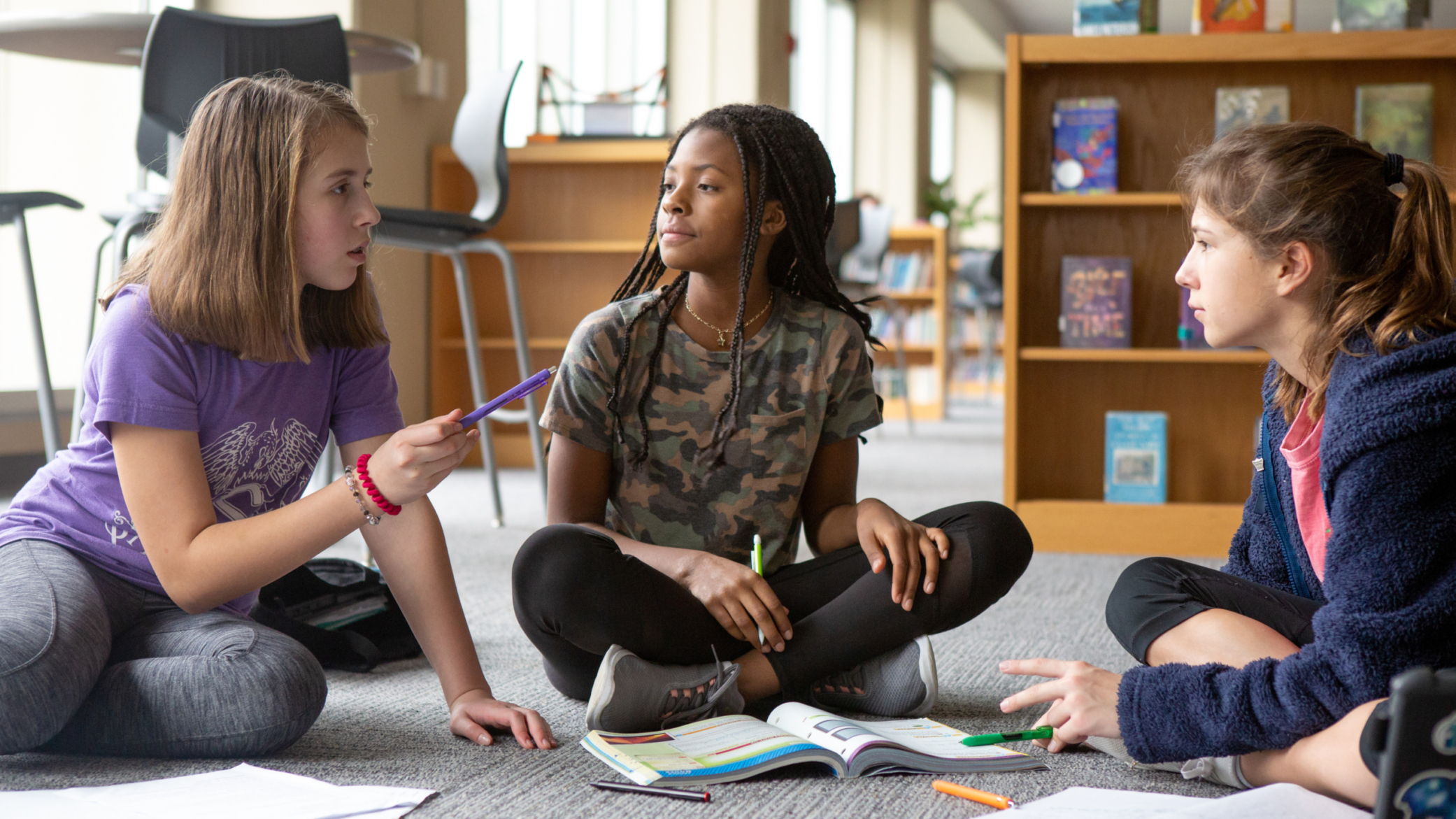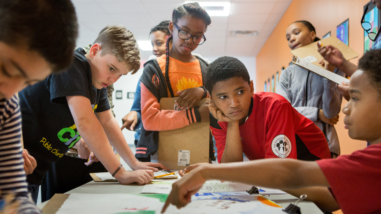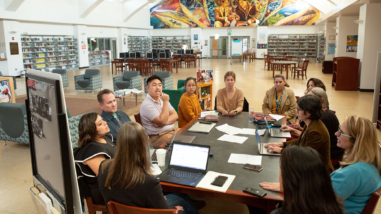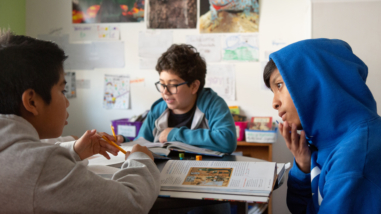Building community networks to strengthen learning

They served as supports for one another, sources of knowledge and community throughout my childhood. This way of sharing information was important: I was a sponge, learning how social support systems were built, how things worked, how to navigate challenges at school, which churches everyone attended, who needed an extra hand or wanted to host a future event and why. This later informed desire to work toward building education systems that are in support of the collective good. My belief that information and knowledge are everywhere, and informal and formal networks can serve as important supports in communities and schools is rooted in the early lessons from under the coffee table.
When schools emphasize engaging student experiences — experiences that center student identity and shared achievements — all of society benefits from the outcomes. Over the past few years, Hewlett has committed more resources to emerging work around social studies, civic learning, and engagement, as a complement to our larger portfolio on deeper learning. We believe that it is important to learn about our democratic systems and history, while providing ways for young people to participate and grow into future leadership. Going forward, we want to increase the focus on this connection, recognizing that perhaps the fullest expression of students learning deeply in school is their ability to apply what they’ve learned to novel problems of community and civic consequence. For instance, one of our grantees is co-designing, along with a national network of educators, openly licensed instructional materials in history and civics. Another is exploring debate in education and the effect on engagement, collaboration, critical thinking, public speaking, listening, and civility. And others are combining the best practices of rigorous project- and inquiry-based learning with positive youth development theory and community organizing principles to make a difference in their communities. We hope for social studies and civics learning and engagement to not just be seen as one period in the school day, but part of a broader recasting of the purpose of education toward preparing people to be productive, full participants in our economy and democracy.
Focusing on continuous improvement
I bring my belief in continuous improvement of systems, a commitment to equity, and knowledge of assessment to this work. Hewlett’s support of systems that strengthen learning and growth will require that we think differently about how to measure and talk about progress. True educational success occurs when students — especially those who come from under-resourced and low-income communities, students of color, multilingual learners, recent immigrants or those who are differently abled — emerge with the knowledge, skills, and mindsets they need to meet the challenges they and their communities face. We have an opportunity to support innovative approaches that widen our lens on experiences students have and how to measure progress.
This past year has taught me that there are many bright spots in public schools and systems across the country. When I started at Hewlett, the pandemic was still in full swing, as was the way in which our country was starting to grapple with racial justice. What I witnessed was the tireless work of grantees — networks of districts, education organizations, community and student groups, and policymakers pulling together to deliver uninterrupted education, despite the challenges of COVID, and committing to support students in an equitable, culturally relevant way. As things have stabilized and our youth have returned to school, I am continually impressed and excited about the work of our grantees and where the foundation is headed. We believe in the power of public schools to provide students with learning experiences that foster mobility and fulfillment in their lives. I am looking forward to continuing to think with our grantees and fellow funders about what civics and social studies look like and how they hold the promise of deeper student experiences. I am inspired by the many ways education leaders are thinking about how to measure and understand student progress and innovations in this area. And, in the face of external pressures, I am hopeful that by centering equity through our investments, with a broad set of individuals and organizations, we will advance both the individual success and collective good for our communities.



